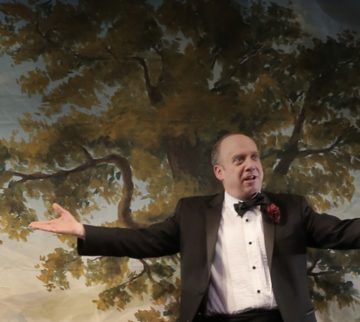Paul Giamatti and Stephen Asma in Aeon:
 Like other artists, the actor is a kind of shaman. If the audience is lucky, we go with this emotional magician to other worlds and other versions of ourselves. Our enchantment or immersion into another world is not just theoretical, but sensory and emotional. How do actor and audience achieve this shared mysterious transportation? This shared ritual draws upon a kind of sixth sense, the imagination. The actor’s imagination has gone into emotional territories of intense feeling before us. Now they guide us like a psychopomp into those emotional territories by recreating them in front of us.
Like other artists, the actor is a kind of shaman. If the audience is lucky, we go with this emotional magician to other worlds and other versions of ourselves. Our enchantment or immersion into another world is not just theoretical, but sensory and emotional. How do actor and audience achieve this shared mysterious transportation? This shared ritual draws upon a kind of sixth sense, the imagination. The actor’s imagination has gone into emotional territories of intense feeling before us. Now they guide us like a psychopomp into those emotional territories by recreating them in front of us.
Aristotle called this imaginative power phantasia. We might mistakenly think that phantasia is just for artists and entertainers, a rare and special talent, but it’s actually a cognitive faculty that functions in all human beings. The actor might guide us, but it’s our own imagination that enables us to immerse fully into the story. If we activate our power of phantasia, we voluntarily summon up the real emotions we see on stage: fear, anxiety, rage, love and more. In waking life, we see this voluntary phantasia at work but, for many of us, the richest experience of phantasia comes in sleep, when the involuntary imagination awakes in the form of dreams.
More here.
